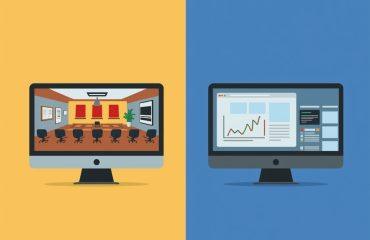advertising
How to Develop a Flexible Career Plan to Adapt to Changes in the Job Market
The job market has never been so dynamic and unpredictable. Professions that were stable a decade ago may now be in decline, while new opportunities arise in sectors that didn't even exist before. Faced with this scenario, having a rigid career plan can be a trap. What you need is a flexible strategy, capable of adapting to changes without losing track of your goals.
advertising
But how do you build this plan? How do you balance the search for stability with the need to constantly reinvent yourself? This article will guide you step by step, showing you how to develop a career that evolves along with the demands of the market, without giving up your professional satisfaction.
Understanding the Importance of Career Flexibility
The first step to creating a flexible career plan is to understand why this adaptability is so crucial. The world of work is constantly evolvingThis has been influenced by technological advances, economic changes and even global crises such as the COVID-19 pandemic. Traditional professions are being reshaped, and skills that were once secondary are now essential.
Imagine a professional who graduated in journalism 15 years ago. Back then, the focus was on writing for print newspapers. Today, that same journalist needs to master digital content production, SEO, videos for social networks and even data analysis. Anyone who hasn't adapted has been left behind. Flexibility is not a luxury, but a necessity.
In addition, today's generation increasingly values freedom and autonomy at work. Many professionals no longer want to follow a single career path for decades, but want to explore different areas throughout their lives. A flexible plan allows you to make smooth transitions, without feeling stuck on a path that no longer makes sense.
Finally, flexibility reduces anxiety about the unknown. Instead of fearing changes, you see them as opportunities. And when you're prepared, crises become opportunities for growth.
Identifying Your Personal Goals and Values
Before drawing up any strategy, it is essential to understand what really matters to you. Money, recognition, work-life balance, purpose? Each person has different priorities, and your career plan should reflect this.
Start by making an honest self-assessment. What are your strongest skills? What activities bring you the most satisfaction? If you could choose any job, without limitations, what would you do? These questions help you define a professional northeven if the way there changes over time.
Values are also essential. Some people prioritize stability, while others seek constant challenges. There are those who want to work in large corporations and those who prefer entrepreneurship. There is no right or wrong answeronly what makes sense to you.
A useful exercise is to imagine your ideal future. In five years' time, how would you like to be professionally? And in ten? Visualizing this scenario helps you set realistic goals, but also allows you to make adjustments as the market and your own preferences change.
Developing Adaptable and Multidisciplinary Skills
A flexible career plan requires skills that can be applied in different contexts. Technical skills are important, but the so-called soft skills-such as communication, problem-solving and creativity- are even more valuable, as they are transferable to any field.
Think of a marketing professional who has learned to analyze data. This skill can be useful not only in advertising campaigns, but also in areas such as sales, project management or even in a transition to IT. The more versatile your skill set, the more options you'll have.
What's more, continuous learning is indispensable. Platforms such as Coursera and Udemy offer courses in a variety of areas, many of them free or accessible. Keeping up to date not only increases your chances in the market, but also broadens your vision of possible career paths.
Another strategy is to seek diversified experiences. If you work in a specific area, try side projects or volunteering in other sectors. These experiences enrich your CV and help you discover new passions.
Building a Strategic Contact Network
Networking isn't just about getting jobs - it's about exchanging ideas, learning from other professionals and keeping abreast of trends. In an ever-changing market, having a solid network can open doors you never imagined.

But how do you build genuine relationships? Start by attending events in your field, either in person or online. Platforms such as LinkedIn are excellent for connecting with colleagues, mentors and even recruiters. Don't wait until you need someone to start cultivating these relationships.
Also, offer value before asking for help. Share knowledge, refer professionals for opportunities or simply listen to the experiences of others. Networking is a two-way street - the more you contribute, the more people will be willing to help you when needed.
Finally, don't underestimate the power of mentors. Having someone with more experience to guide you can accelerate your growth and avoid common mistakes. If you don't know anyone personally, online groups and mentoring programs, such as those offered by Endeavorcan be great alternatives.
Monitoring Trends and Adjusting the Plan
A flexible plan only works if you are willing to review it regularly. The market changes, so do your priorities - and your plan must keep pace with this evolution. But how can you keep an eye on the trends without getting lost amid so much information?
One tip is to follow industry reports and news about innovations. Sites such as Gartner and McKinsey publish analyses of the future of work in various fields. Identify which changes could affect your career and prepare for them.
Also, do regular check-ins with yourself. Every six months or a year, reflect: are you still satisfied with your path? Are your skills aligned with current demands? If necessary, adjust your goals and strategies. Flexibility does not mean a lack of direction, but rather the ability to recalculate the route when necessary.
Finally, be open to unexpected opportunities. Sometimes the best path is not the one you initially planned, but a door that has opened in the middle of the journey.
Cultivating Resilience and Growth Mindset
Adapting to change requires resilience-the ability to face challenges without giving up. And this goes beyond technical skills; it's a question of mentality. How do you react when something doesn't go as expected?
People with growth mindset believe that they can develop new skills with effort and persistence. Instead of seeing failures as failures, they see them as learning. This attitude is essential in a volatile market where reinvention is constant.
To strengthen your resilience, practice self-knowledge. Recognize your strengths and areas for improvement, but without excessive self-criticism. Tools such as coaching and therapy can help in this process.
What's more, don't be afraid to leave your comfort zone. If a different opportunity arises, even if it seems risky, evaluate it calmly. Often, it is precisely these experiences that bring the greatest growth.
Implementing the Plan and Keeping it Alive
There's no point in having a flexible plan if it's kept in a drawer. Action is what turns ideas into reality. Start by setting short-, medium- and long-term goals, but remember that they can (and should) be adjusted as necessary.
Set realistic deadlines. Want to change area? Maybe you need a course or certification first. Put these steps down on paper and track your progress. Tools such as Trello ou Notion podem ajudar a organizar suas metas.
What's more, celebrate small victories. Every step you take is an achievement, and recognizing this keeps your motivation high. If something goes wrong, don't get discouraged-reassess and move on.
Finally, share your plans with people you trust. Having someone to report to increases your commitment and can provide valuable insights.
The future of work is uncertain, but your career doesn't have to be. With a flexible plan, you'll be ready to navigate any change, turning challenges into growth opportunities. So, are you ready to get started?



